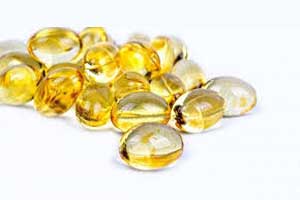- Home
- Editorial
- News
- Practice Guidelines
- Anesthesiology Guidelines
- Cancer Guidelines
- Cardiac Sciences Guidelines
- Critical Care Guidelines
- Dentistry Guidelines
- Dermatology Guidelines
- Diabetes and Endo Guidelines
- Diagnostics Guidelines
- ENT Guidelines
- Featured Practice Guidelines
- Gastroenterology Guidelines
- Geriatrics Guidelines
- Medicine Guidelines
- Nephrology Guidelines
- Neurosciences Guidelines
- Obs and Gynae Guidelines
- Ophthalmology Guidelines
- Orthopaedics Guidelines
- Paediatrics Guidelines
- Psychiatry Guidelines
- Pulmonology Guidelines
- Radiology Guidelines
- Surgery Guidelines
- Urology Guidelines
Vitamin D supplements of no benefit in elderly over 70, study finds

A new Newcastle University-led study has revealed that there is little benefit for those over 70 taking higher dose vitamin D supplements to improve their bone strength and reduce the risk of falls, new research has revealed.The study has been published in the American Journal of Clinical Nutrition.
Vitamin D insufficiency is common in older people and may lead to increased bone resorption, bone loss, impairment of muscle function, and an increased risk of falls and fractures. The results of clinical trials assessing the effect of vitamin D supplementation on bone mineral density (BMD), bone loss, falls, and fractures have yielded conflicting results, and, although a recent meta-analysis of clinical trials reported a possible relation between vitamin D supplementation and higher BMD at the neck of femur, it suggested that supplementation with vitamin D has a benefit for bone health only in those at risk of vitamin D deficiency
In the study 379 adults aged 70 years or older, were randomly allocated to one of three doses of vitamin D given once a month for a year—the doses were 300 µg, 600 µg or 1200 µg (equivalent to a daily dose of 10 µg, 20 µg or 40 µg).
The aim of study led by Dr. Terry Aspray, Honorary Clinical Senior Lecturer at Newcastle University's Institute of Cellular Medicine was to measure in these older people the effect of vitamin D supplementation on the change in bone mineral density (BMD), a recognised indicator of bone strength, and changers in markers of bone metabolism.
It was found that there was no change in BMD over 12 months between the three doses. However, the study did show that doses equivalent to 40 µg a day are safe in an older population and there was a beneficial effect on bone metabolism up to the highest dose.
Lead author Dr. Terry Aspray said "Vitamin D deficiency is common in older people, and it may lead to bone loss, impairment of muscle function and an increased risk of falls and fractures."The results from previous studies assessing the effect of vitamin D on bone mineral density have yielded conflicting results, and our study is a significant contribution to the current debate.
"While our findings do not support evidence of the benefit of high dose vitamin D supplements, at least on bone mineral density, we do, however, identify that higher doses of the vitamin may have beneficial effects on bone metabolism and that they are safe for older people.
"I would suggest that older people should focus on maintaining a healthy, balanced diet, adequate sun exposure and take regular exercise to keep their bones as strong as possible.
"While some may need to take vitamin D supplements, there is little benefit to taking more than 10 µg a day."
Further analysis is underway on the effects sun exposure on vitamin D levels in older people and the impact of vitamin D supplements on muscle strength.In addition to this studies are being conducted regarding impact of genes and kidney function on vitamin D levels and their function in the blood.

Disclaimer: This site is primarily intended for healthcare professionals. Any content/information on this website does not replace the advice of medical and/or health professionals and should not be construed as medical/diagnostic advice/endorsement or prescription. Use of this site is subject to our terms of use, privacy policy, advertisement policy. © 2020 Minerva Medical Treatment Pvt Ltd